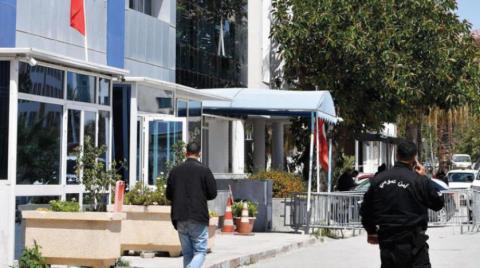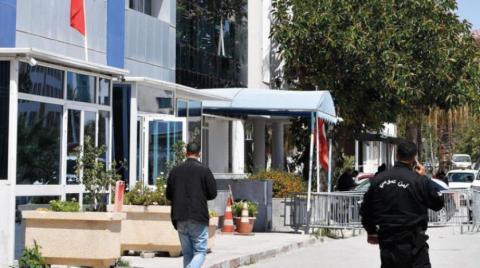
The headquarters of Ennahda Movement in all 24 governorates of Tunisia were shut down on Tuesday following “high-level orders” to security forces, informed sources told Asharq Al-Awsat.
Decisions to ban all political activities of the movement are reportedly in the works, potentially paving the way for a complete ban of Ennahda and its classification as a terrorist organization.
Sources predicted that more Ennahda leaders and supporters would be summoned for questioning, possibly leading to a final confrontation between the movement’s leadership and President Kais Saied.
They also anticipated the pursuit of all critics of Saied’s policies, especially on social media platforms.
This follows the arrest of Ennahda’s leader, Rached Ghannouchi, by Tunisian security forces.
Ghannouchi was transported to military barracks in El Aouina, located in the north of the capital city of Tunis, for questioning regarding statements that were attributed to him and that allegedly incited civil war in Tunisia.
It is believed that these statements were the main reason for the raid on his home, search, and referral for questioning with the permission of the Tunisian public prosecutor’s office.
Additionally, three leaders Ennahda Movement, who were considered close to Ghannouchi, were also arrested.
Lawyer Mokhtar al-Jamei confirmed that movement advisers Muhammad al-Qumani and Belkacem Hassan, both members of the executive office, were detained on Sunday night for questioning in the same case that led to Ghannouchi’s arrest.
Al-Jamei, who is Ghannouchi’s legal representative, stated that the defense team “was not able to know the reasons for the arrest of Ghannouchi, al-Qumani, and Hassan, nor were they able to know the charges against them or their place of detention.”
Human rights sources confirmed that Ghannouchi declined to provide any information during his initial hearing with the central unit for combating terrorism of the National Guard in the El Aouina barracks, following his arrest.
He also insisted on the presence of his lawyer during the hearing, which is not possible until 48 hours after arrest according to Tunisia’s 2015 counter-terrorism law.












